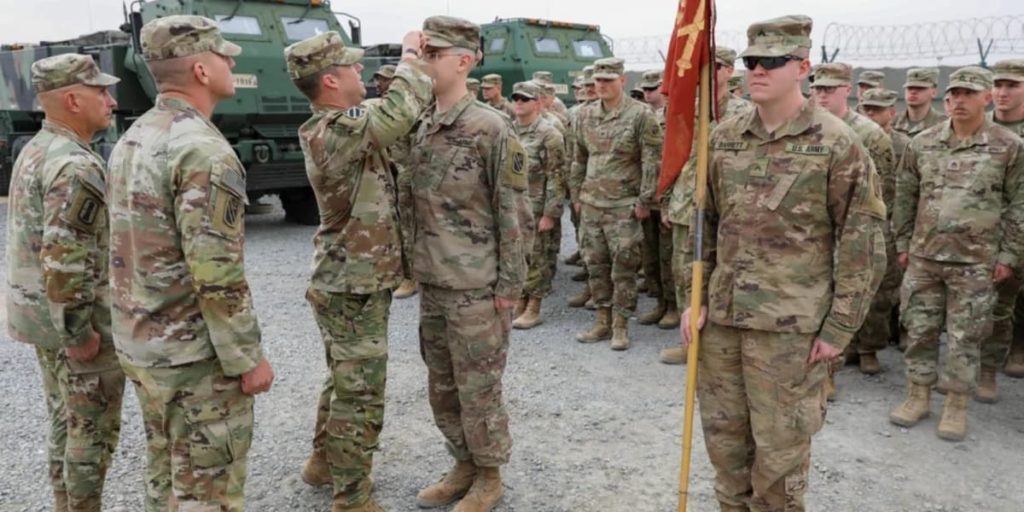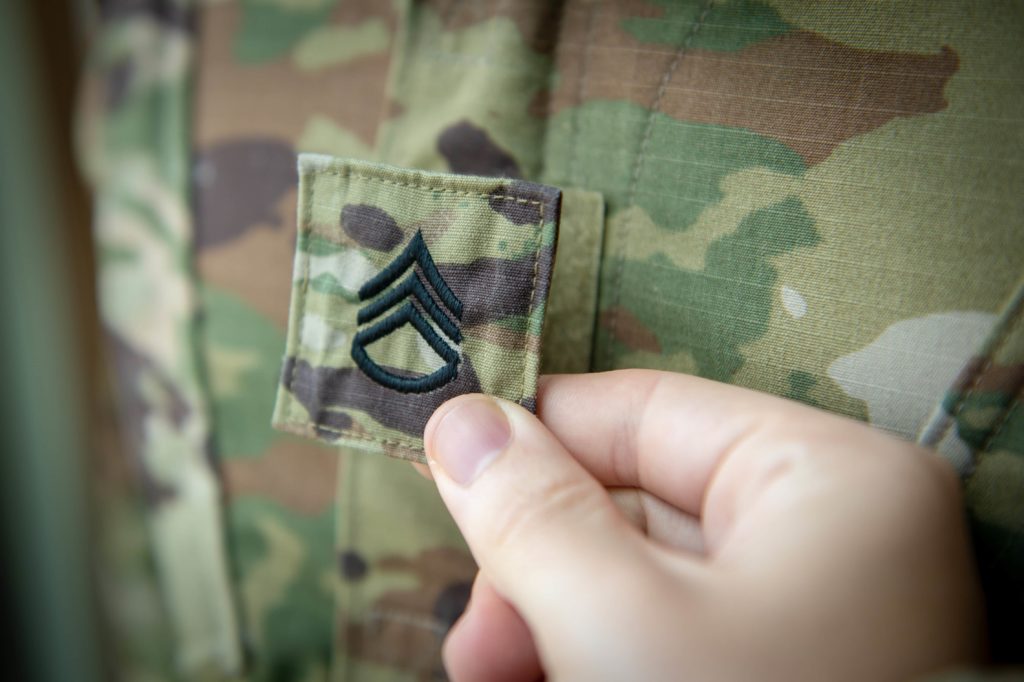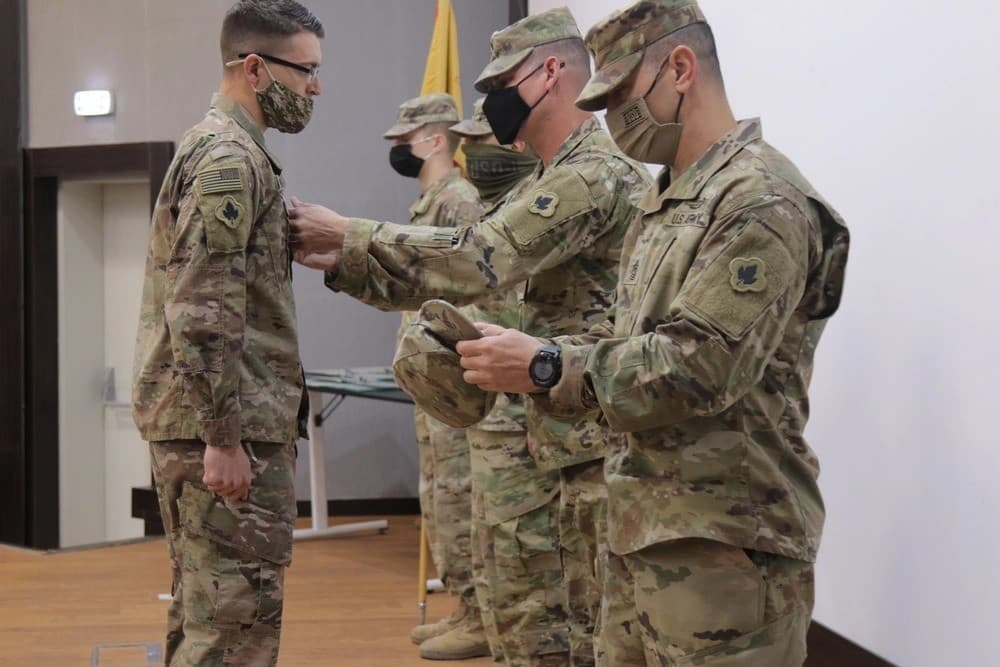Army enlisted promotions are a great way to boost your career and demonstrate your ability and commitment to the military. It’s important to know the game’s rules and understand how promotions work before you start pursuing them.
The Army uses a points system to reward soldiers for their accomplishments. This includes time served in specific jobs, awards, and completed schooling, among other factors.
The Army’s enlisted promotion system is similar to that of the Marine Corps and Air Force. Soldiers occupy rank and pay grade positions that are standardized across all services, with E-1 through E-9 for enlisted soldiers and O-1 through O-10 for officers.
The junior enlisted ranks include private first class (PFC), specialist, and corporal. These titles are earned after serving a minimum of six months in the Army and completing a training course, such as the Basic Leader Course.
Corporals have personnel leadership responsibilities and must conduct periodic Noncommissioned Officer Evaluation Reports for their subordinate NCOs. They are usually assigned to squads or sections and may direct the activities of lower-ranked NCOs, such as privates and specialists.
Specialists have a more technical role and less personnel leadership responsibilities than corporals. They typically enter the Army with a four-year college degree or with specific specialized civilian skills.
Staff sergeants are considered senior NCOs and have increasing levels of responsibility, and demand more respect and deference from their subordinates than lower-ranked NCOs do. They are assigned as a squad and section leaders and often conduct periodic counselings of their assigned privates, specialists, and lower-ranked NCOs.
The Army has implemented several changes to its enlisted promotion system to keep it efficient and fair for all soldiers. These include a mandatory lateral appointment to corporal for all specialists selected for promotion to sergeant and an increase in time-in-grade requirements for staff sergeants not in special operations career fields. The Army is also implementing new competition and selection processes for key senior enlisted leader positions.
What is the enlisted promotion system?
The enlisted promotion system in the Army is based on time in service (TIS) and time in grade (TIG). TIS is the number of years a soldier has served in the military, while TIG is the number of years they have served at their current pay grade.
The Army uses a variety of different methods to promote soldiers, including decentralized promotions, semi-centralized promotions, and centralized boards. These systems use a combination of administrative points and board points to make a recommendation for promotion.
Currently, a temporary Army promotion policy lets some Soldiers earn promotions earlier than the normal promotion process would require. This policy is currently in effect through the end of the fiscal year 2023.
These early promotions are only for Soldiers who have completed at least six months of service and are in a pay grade that is eligible for the promotion. Generally, a Private first class can be promoted to a PFC when they have 12 months of accumulated time in service and four months in the E-4 pay grade.
To qualify for these early promotions, Soldiers must complete training courses, earn Army expert badges and meet Army Combat Fitness Test scores. This can take a little time, but once you are ready for a promotion, the Army will help you get there.
Some other recent changes to the promotion system have also been designed to help junior NCOs become senior NCOs faster. For instance, the Army recently changed the minimum time-in-grade requirement for staff sergeants to 48 months, an increase of 12 months. In addition, the Army is trying to make it easier for staff sergeants in special operations career fields to advance quickly into a higher rank.
Can an enlisted become an officer?

Enlisted personnel make up the majority of military personnel, and they are assigned a job specialty for which they receive training. Often, these jobs are highly transferable to civilian employment in transportation, mechanics, and human services.
However, a small percentage of military members choose to become commissioned officers. These hold bachelor’s degrees and aspire to be in leadership positions.
Commissioned officers are leaders who plan missions, give orders and assign enlisted personnel to tasks. They comprise 17% of the armed forces.
Noncommissioned officers (NCOs) oversee lower-ranking enlisted and provide them with assignments and guidance. These enlisted soldiers have more experience and expertise than commissioned officers but are not required to have college degrees or attend officer training classes.
Warrant officers, by contrast, are specialists who can rise to higher ranks in their primary specialties. They often work with enlisted service members and provide additional training while providing management and leadership opportunities to higher-ranking enlisted personnel.
As with enlisted promotions, the process for becoming a commissioned officer differs by branch. Typically, officers must pass an exam and have the required medical fitness to attend officer candidate school (OCS). They can begin serving as commissioned officers if they pass their training classes.
Can enlisted quit?
Once you sign on the dotted line and ship out to basic training, officer candidate school, or other military education programs, you have committed to the United States Military. You have agreed to a contract that specifies your pay, travel, housing, and other military service details.
It is very important that you honor your enlistment contract and see your military service through to the end. The military cannot afford to allow a soldier to quit his or her service, which could lead to desertion in combat and other logistical issues.
You can be discharged from military duty early due to physical or psychological inability to perform your duties, for drug abuse or misconduct, and other reasons. Some soldiers are even discharged for conscientious objection.
The Army is aware of many service members who wish to leave the military for personal reasons. However, most people are not granted permission to leave the Army.
If a soldier is planning to accept employment in the civilian sector, he or she can request an early out up to six months before the ETS. Under policies now in effect, senior commanders can approve soldiers voluntarily leaving early if they have documented job offers in the civilian sector.
The early out can also be authorized for soldiers who are barred from re-enlisting due to their military occupational specialties, or MOS. Bars to re-enlistment are established by the Defense Department under the Precision Retention Program.

Can an enlisted man be promoted to officer?
When an individual joins the Army, he or she takes an oath to serve his or her country. Then, the person must complete basic military training and advanced individual training, and he or she will be assigned a job within a unit.
Commissioned officers start their careers in the ranks of second lieutenant (ensign in the Navy) or first lieutenant (jgt in the Marine Corps). They have a wide range of responsibilities and can be promoted to higher officer grades as necessary.
Promotions are based on time in service, time in grade, and level of performance, and they require a number of tests and written evaluations. They also consider recommendations from superior officers.
As an enlisted member, you can also get promoted to a higher rank by demonstrating exceptional leadership on the battlefield. This type of promotion is known as a battlefield commission and originates in the medieval practice of knighting soldiers on the field for their heroic qualities during battle.
You can also become a commissioned officer in the Air Force by completing Officer Candidate School or Officer Training School. These programs vary from branch to branch but are the easiest way to earn a commissioned appointment.
Can you get promoted to SGT without BLC?
If you want to become a sergeant in the Army, you can get promoted to that rank without going to a professional development school. The Army is expanding a promotion policy to allow some soldiers to temporarily promote before taking leadership courses.
The Army is allowing eligible soldiers who are promoted to the next rank before they take their required professional military education courses up to one year to complete them, Sergeant Major of the Army Michael Grinston said Tuesday. The change will apply to all eligible enlisted troops, including NCOs.
This is an extension of a similar promotion policy for senior NCOs, which Grinston announced last November. The decision to let qualified enlisted personnel temporarily advance to the next rank was made after backlogs in NCO schools caused delays in educating Soldiers for promotion.
Those delays were largely due to the coronavirus pandemic, which forced the Army to cancel courses at many NCO schools. And it also meant that some top-performing Soldiers could miss their promotions because they weren’t able to attend school, Grinston said.
The new policy is an effort to allow more Soldiers to be a leader. It will help Soldiers develop their leadership skills and prepare them for promotion to the rank of sergeant, a higher grade than corporal, NCO Chief Master Sergeant Dan Gaskins told reporters Monday.
